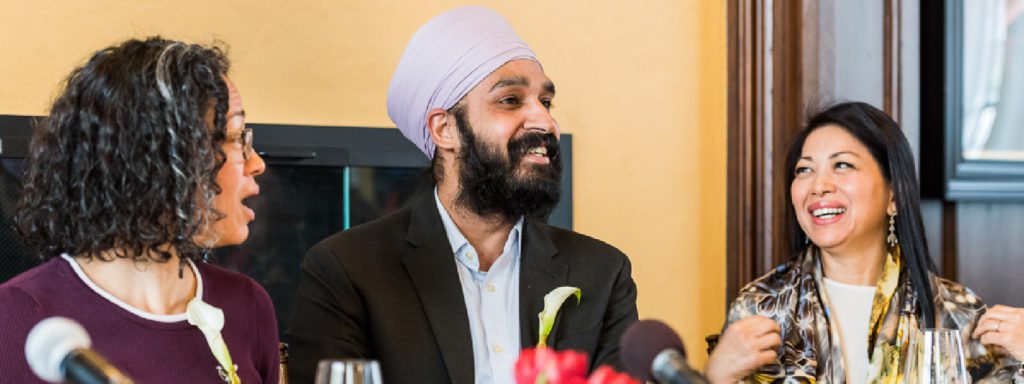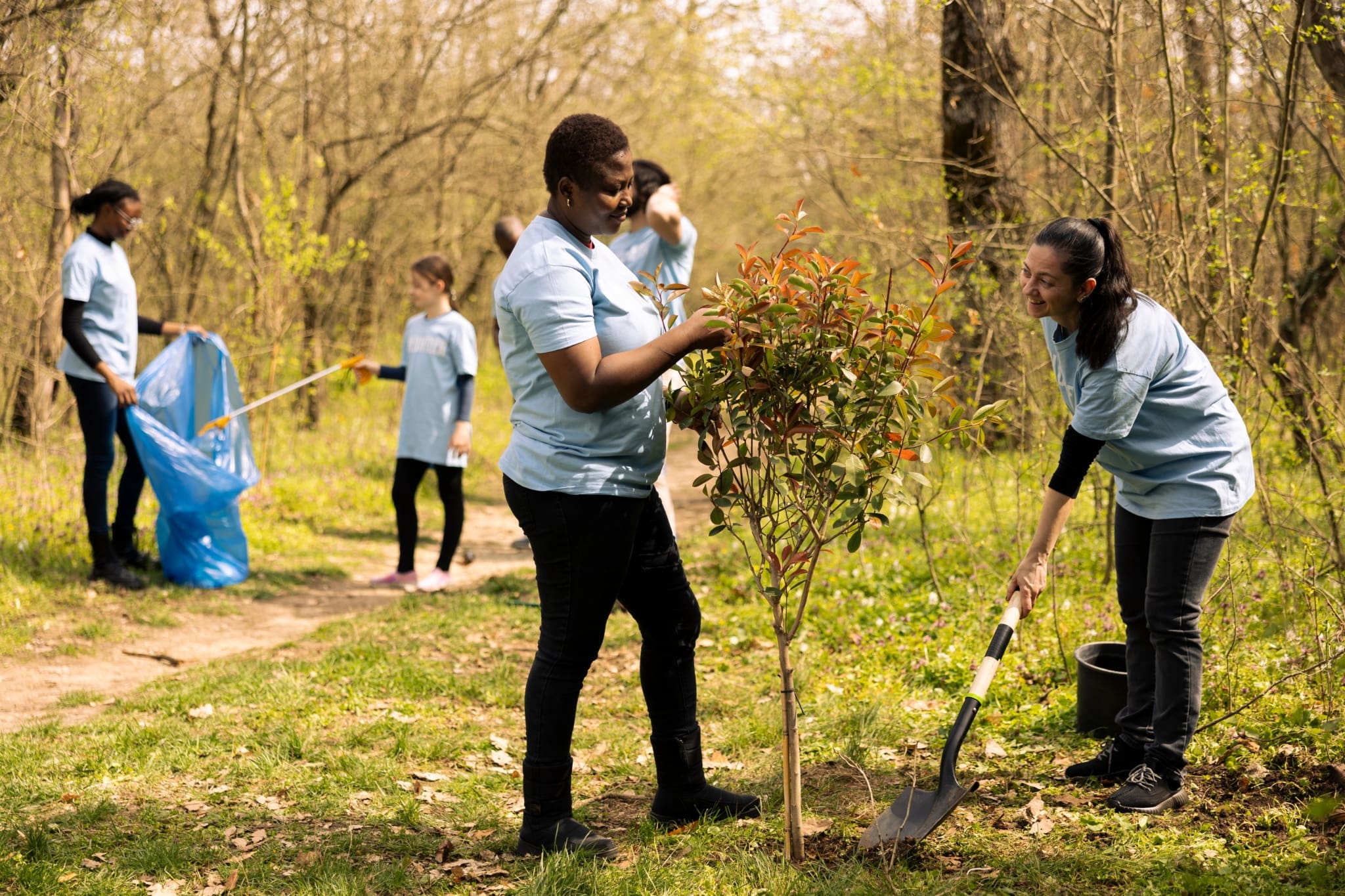The Aspen Institute’s Religion & Society Program, launched in 2012, builds and sustains the field of religious pluralism by supporting faith and civic leaders, encouraging philanthropic giving to the field, and producing resources to help encourage involvement with religious pluralism. In January, the program changed its name from the Inclusive America Project to the Religion & Society Program, a reflection of how its work has progressed over time and the important role of faith in our lives today. We spoke with Sheridan Ruiz, the program’s communications and development associate to learn more.
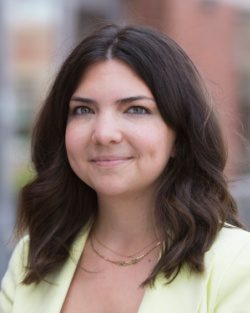
Sheridan Ruiz
IS: Tell us more about the program’s mission.
SR: We work across sectors, with nonprofits, funders, practitioners, scholars, and others with an interest in religious pluralism, which we see as a vision of the world in which diverse religious communities and non-believers can engage each other in beneficial ways while continuing to live with their distinct identities. We see religious pluralism as a critical component of American democracy and civic debate.
There are seven areas that are unique on their own but together we consider to make up the important aspects of religious pluralism. These areas include: thriving religious communities, religious freedom, religious literacy, diversity and representation in media, hate crime prevention, racial justice, and multi, intra, and inter-faith engagement. The Program strengthens these seven components through our Religious Pluralism Funders Circle, Powering Pluralism Network and scholarly research. Through the Network we gather around 20 people in a cohort around each of those areas; we have five cohorts now and will add two more this year (dismantling hate and extremism and diversity and representation in the media).
IS: What are some of the program’s core initiatives? 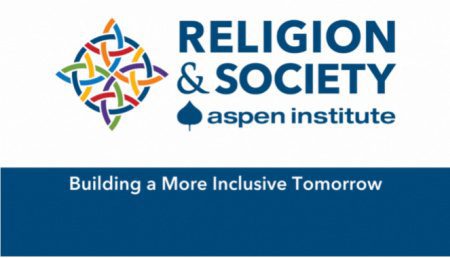
SR: Our main initiatives focus on connecting funders, bringing together a network of leaders, and producing research to advance the field.
- The Religious Pluralism Funders Circle brings together funders (not necessarily our funders) from organizations with interest in and who want to support religious pluralism or learn more about this field. The circle also receives exclusive briefings on our research.
- The Powering Pluralism Network is a national network of faith and civic leaders, academics, nonprofits, funders, and other key leaders working in religious pluralism.
- Research and reports on religious pluralism from the program advance the field and build common language.
IS: As a new Independent Sector member, what are you looking forward to that will help your organization better achieve your mission and support your key stakeholders?
SR: Allison Ralph, our Associate Director, enjoyed being part of NGen programming, and staff have also enjoyed being part of Upswell programming and already benefited from that.
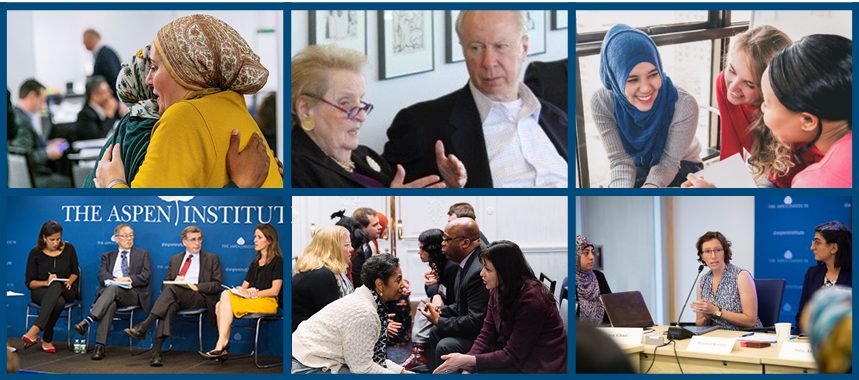 Independent Sector is leading on weaving religious identity into diversity, equity, and inclusion work. And overall, IS has a great network that we are excited to continue to connect with and learn from. 35-40% of nonprofits are faith-inspired, and we know we haven’t connected with them all yet. We look forward to making new connections through the Independent Sector network.
Independent Sector is leading on weaving religious identity into diversity, equity, and inclusion work. And overall, IS has a great network that we are excited to continue to connect with and learn from. 35-40% of nonprofits are faith-inspired, and we know we haven’t connected with them all yet. We look forward to making new connections through the Independent Sector network.
IS: Through the work of the program, have you discovered anything surprising?
SR: Through The Politics of Vulnerability project, we have had the opportunity to bring together Muslims and conservative Christians, who are often thought of as being on opposite ends of the political spectrum, together around the common goal of religious freedom.
Through our work promoting conversation in healthy ways across divides, we have found that faith often fuels finding common ground. There is so much to be said for wanting to understand and asking questions, that practice promotes social cohesion. It shows that faith can be a tool for connection, even when it may have been the cause of polarization in the first place.
IS: What else would you like to share about the program’s recent name change? What are you looking forward to during this anniversary year for the program?
SR: In addition to the new name for our program, our new Executive Director, Dr. Simran Jeet Singh, started in the fall of 2021. He has been thinking a lot about our work and how it’s grown over the past 10 years, and that reflection contributed to the rebranding. Dr. Singh is a known leader in our area of work and has brought fresh insights and a new trajectory to our initiatives in religious pluralism. We’re excited to lean into our role as thought leaders in this area as we mark 10 years this year.
On February 17, we will host our first event under the program’s new name, focused on the siege on the U.S. Capitol in 2021 that called our attention to the urgent threat of Christian nationalism and raised questions about the role of religion in society today for people of all faiths. In the broader sense, it will approach questions of how to make our society more inclusive and respectful.
We will celebrate our 10-year anniversary this September. Looking to next year, in 2023 we will bring all the cohorts together (hopefully in-person). By then, there will be 170 or 180 participants, and that convening will be an exciting culmination of work that started in early 2020.
All images and the graphic are courtesy of Aspen Institute’s Religion & Society Program, a member of Independent Sector. Learn about other Independent Sector members and becoming a member.
